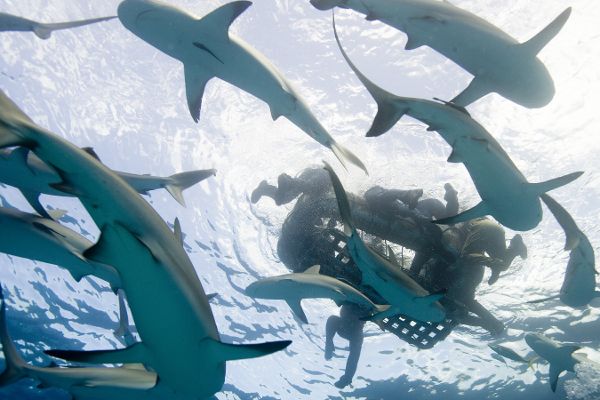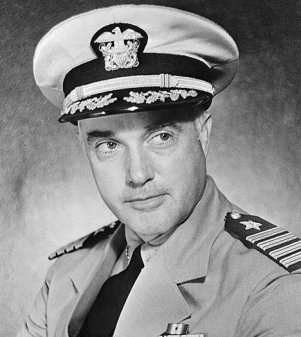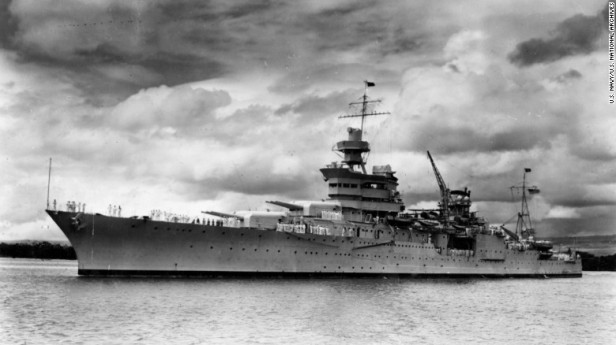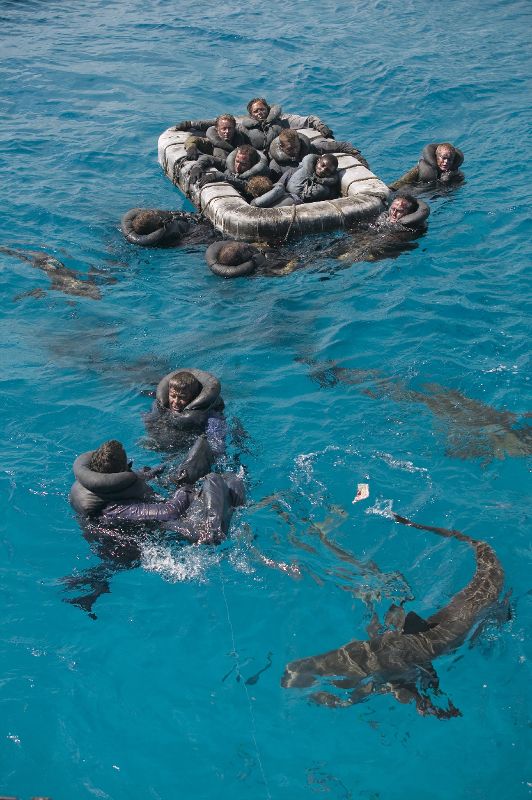Ocean of Fear: Worst Shark Attack Ever is a 2007 made-for-television documentary film that recounts the sinking of the USS Indianapolis which had been torpedoed by Japanese submarine I-58 captained by Commander Mochitsura Hashimoto, who initially thought he had spotted the New Mexico-class battleship Idaho, on July 30, 1945 in the Philippine Sea.

The show investigated the shark attacks that occurred when the USS Indianapolis sank. Of the estimated 900 men who survived the attack, only 317 were rescued after four days in shark infested waters. According to the accounts of the surviving crew, most of the men died of either exhaustion, exposure to the elements, or drinking the ocean water, not from shark attacks. However, this incident is still one of the worst cases of sharks feeding on humans.
 Captain Charles B. McVay III, who had commanded Indianapolis since November 1944, survived the sinking and was among those rescued days later. In November 1945, he was court-martialed and convicted of “hazarding his ship by failing to zigzag”. Several aspects of the court-martial were controversial. There was evidence that the Navy itself had placed the ship in harm’s way. McVay’s orders were to “zigzag at his discretion, weather permitting”; however, McVay was not informed that a Japanese submarine was operating in the vicinity of his route from Guam to Leyte. Further, Mochitsura Hashimoto, commander of I-58, testified that zigzagging would have made no difference. Fleet Admiral Chester Nimitz remitted McVay’s sentence and restored him to active duty. McVay retired in 1949 as a rear admiral.
Captain Charles B. McVay III, who had commanded Indianapolis since November 1944, survived the sinking and was among those rescued days later. In November 1945, he was court-martialed and convicted of “hazarding his ship by failing to zigzag”. Several aspects of the court-martial were controversial. There was evidence that the Navy itself had placed the ship in harm’s way. McVay’s orders were to “zigzag at his discretion, weather permitting”; however, McVay was not informed that a Japanese submarine was operating in the vicinity of his route from Guam to Leyte. Further, Mochitsura Hashimoto, commander of I-58, testified that zigzagging would have made no difference. Fleet Admiral Chester Nimitz remitted McVay’s sentence and restored him to active duty. McVay retired in 1949 as a rear admiral.
While many of Indianapolis’s survivors said McVay was not to blame for the sinking, the families of some of the men who died thought otherwise. The guilt that was placed on his shoulders mounted until he committed suicide in 1968, using his Navy-issued revolver. McVay was discovered on his front lawn by his gardener with a toy sailor in one hand, revolver in the other. He was 70 years old.

In 1996, sixth-grade student Hunter Scott began his research on the sinking of Indianapolis for a class history project, an assignment which eventually led to a United States Congressional investigation. In October 2000, the United States Congress passed a resolution that Captain McVay’s record should state that “he is exonerated for the loss of Indianapolis”. President Bill Clinton signed the resolution. The resolution noted that, although several hundred ships of the US Navy were lost in combat in World War II, McVay was the only captain to be court-martialed for the sinking of his ship.
In July 2001, the United States Secretary of the Navy ordered McVay’s official Navy record cleared of all wrongdoing.

